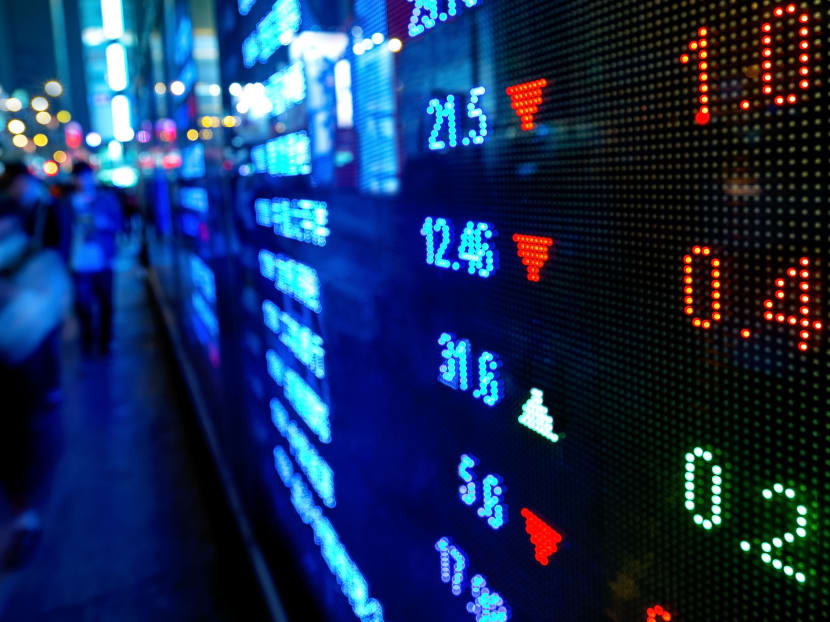A black swan arrives: Investors keep watch as Covid-19 outbreak changes market sentiments
The coronavirus outbreak has been very much in the news and apart from its impact on public health and the economy, it also has effects on investments.
The coronavirus outbreak has been very much in the news and, apart from its impact on public health and the economy, is also affecting investments.
Investors should position their portfolio carefully and watch markets closely during this period.
IMPACT ON STOCK MARKETS
Concerns about the Covid-19 coronavirus in various countries continue to roil the markets with a heavy dose of volatility, financial advisory firm ETF Database observed.
British newspaper The Guardian reported that financial markets remain confident the crisis will soon blow over, as share prices have been rebounding because investors think the coronavirus can be contained.
Yet, it also noted that Mohamed El-Erian, the chief economic adviser to insurance company Allianz, thinks that the economic damage could be a black swan event equivalent to the collapse of the US sub-prime mortgage market.
Black swan events is a term popularised by writer Nassim Taleb and based on a saying that black swans did not exist (until they were discovered in the wild).
They are events that come as a complete surprise, have profound consequences and are rationalised by people who never saw the crisis coming and who then say after the fact that it was glaringly obvious that there was trouble ahead.
The epidemic in China caused by coronavirus Covid-19 and the infections spreading in other countries have already become a black swan event for the Asia-Pacific tourism industry, business information company IHS Markit says. It could hit other sectors as well.
MARKET FORECASTS
While investors understandably want to know what to do at this time of uncertainty. financial advisory firm Evergreen Gavekal’s adviser Arthur Kroebel says that it is a “fool’s errand” to come up with highly specific forecasts for the ultimate impact on Chinese, regional or global gross domestic product (GDP) given the uncertainties involved.
If it does turn into a global pandemic, he said, global supply chains would face more disruption, commodity prices would fall more severely, and central banks would face pressure to offset the impact.
Already, though, financial services firm ING expects that potential spreading of the virus across the globe could last until March or April and mark a new downside risk to the global economy in the first half of 2020.
Investment bank JP Morgan said that the coronavirus remains in its early stages and “is likely to worsen before getting better”.
Here in Singapore, DBS bank said that the outbreak has thrown the Singapore economy a curveball.
Supply chain disruptions such as extended factory closures within China will have a significant impact on Singapore’s manufacturing sector, for example, and consumer spending is expected to be dampened as residents take more precautionary actions in their daily lives.
As a result, “we are downgrading our 2020 real GDP forecast to 0.9% (from 1.4%) in response to the potential impact. The concern is that the impact could be deeper than Sars (severe acute respiratory syndrome).”
Over in Hong Kong, The Guardian said that the economy risks being plunged deeper into recession as the outbreak wreaks havoc, with consumers panic-buying staple goods and airlines stopping flights.
POSITION YOUR PORTFOLIO PROTECTIVELY
Amid all these uncertainties, a key question for investors is how to position their investment portfolio well and prepare effectively for whatever the next several months may bring.
“When you don’t know,” Mr Ray Dalio, founder of hedge-fund giant Bridgewater Associates told MarketWatch, “the best investment strategy is to be smartly diversified across geographic locations, asset classes, and currencies.”
So far, he said, “fears of the spreading coronavirus have triggered a ‘flight-to-quality’ that continues to pressure stocks while giving a lift to hedges such as gold, bonds and the (US) dollar.”
British financial research firm Trustnet similarly said that some investors have started taking more defensive positions, with government bonds and gold being preferred options.
For stocks, it could be advantageous to avoid vulnerable companies in the tourism sector such as airlines and cruise lines or hotels and to buy companies such as e-commerce or food delivery firms that will benefit even if consumers stay at home.
Investors can also benefit by taking advantage of shifts in the market.
While JPMorgan Chase analysts noted that previous global health scares such as Sars and Zika did not unsettle equities for an extended period, the MSCI Hong Kong index lost about 9 per cent during the Sars epidemic and then jumped17 per cent in the three months after the disease faded from view.
Investment brokerage Schwab similarly said that although there is always a chance that this outbreak could have greater consequences, the global economy and markets have been relatively immune to the effects of past viral epidemics. “A short-term dip in stocks tended to be followed by the continuation of the upward trend,” it said.
While there is uncertainty about the impact on investments and a panicked rush to buy less risky assets is not appropriate, investors would be well-advised to examine their portfolio and ensure that it is sufficiently diversified.
Given the uncertainties, it could also be advisable to take a more defensive posture than usual over the next several months and increase the allocation to investments in bonds while reducing the allocation to stocks and potentially shifting the types of stocks in the portfolio.
Even though the timing of an upturn is uncertain, watching trends and taking advantage of dips to buy if markets rebound could also be beneficial.







